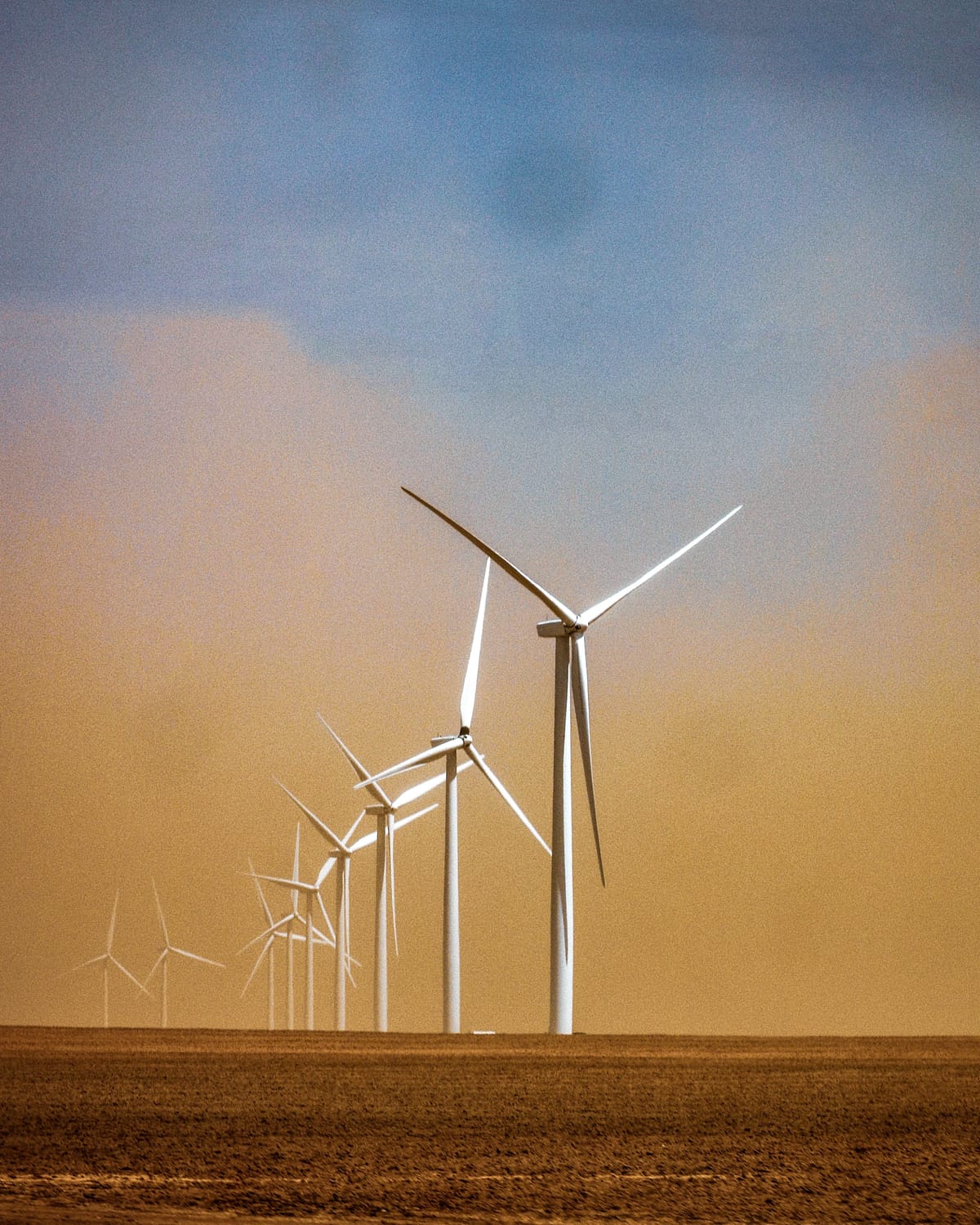Where the Wind Blows
The time for clean energy is now. Are we ready to do it right?

LISTENING: to my 2024 anthem, "Unavailable"
FEELING: energized
SEEING: my to-do list get done
Here's some good news to kick off the new year: For the first time, the U.S. is producing large-scale, offshore wind power. That's major. By the project's completion, it will be producing enough energy to run 400,000 homes.
Let's see more of this in 2024. I want more wind, more solar, and more clean energy — but I don't want these innovations if they sacrifice human rights. I haven't seen such allegations regarding this Massachusetts project, but it's what comes to mind these days when I read about the green revolution.
Clean energy technologies require critical and rare minerals that must be mined: cobalt, lithium, nickel, graphite, copper. "A typical electric car requires six times the mineral inputs of a conventional car and an onshore wind plant requires nine times more mineral resources than a gas-fired plant," per the International Energy Agency,
Though some proponents of mining see the energy transition as a financial opportunity for underdeveloped countries that have these minerals, opponents (especially Indigenous and peasant groups where over half of these resources are on or near) recognize that mining often comes at a cost to the land and their health.
In 2024, I want to see more nuanced conversations about the global shift away from fossil fuels — one rooted in the realities of environmental racism. In one possibility for our future, we cut carbon emissions by investing in electric vehicles and solar. In that future, leaders can listen to community concerns around pollution and water usage when projects are proposed. Or they can carry on with business as usual and ignore advocates and locals.
In both possible scenarios, leaders have averted climate calamity — but at what cost? Displacement? Eroded waterways? A loss of food and water?
Welcome to Possibilities, a creative climate newsletter on the possibilities that lie where crisis meets community. I’m Yessenia Funes, and we won't solve this mess by replicating past harms.
This is all heavy on my mind as the anniversary is coming up of when five water defenders in El Salvador were arrested. These activists made the world's first mining ban possible in 2017 in El Salvador, my ancestral lands. Now, the government is persecuting them in what human rights groups worry is a new attempt to bring mining back.
Mining remains a hot issue across the globe — whether industries want to access minerals for clean energy or gold for pure greed. In El Salvador, it's the latter.
I'm working on a story about this, so more on that soon — but I want to put in record my own goal this year to cover in earnest this moment we're living through. What will the clean energy transition mean for our most vulnerable? Is there a world where mines don't pollute? And what role do politics play, especially in a U.S. election year? How is the rise in authoritarianism putting communities at environmental risk? I hope to cover the energy transition more critically and nuanced — with special attention on Latin America and the U.S.
That's my New Year's resolution. What's yours? 🌀
Rest in Power
While we can't say for certain that climate change led to these specific weather events (we need attribution studies for that), we do know that the Earth's rising temperatures are already creating more disasters like these.
The Congo is reeling from awful floods last week that killed at least 40 people.
On New Year's Day, two dozen earthquakes in Japan led to the deaths of at least 48 people. Scientists are just beginning to understand the way the climate crisis may trigger earthquakes.
